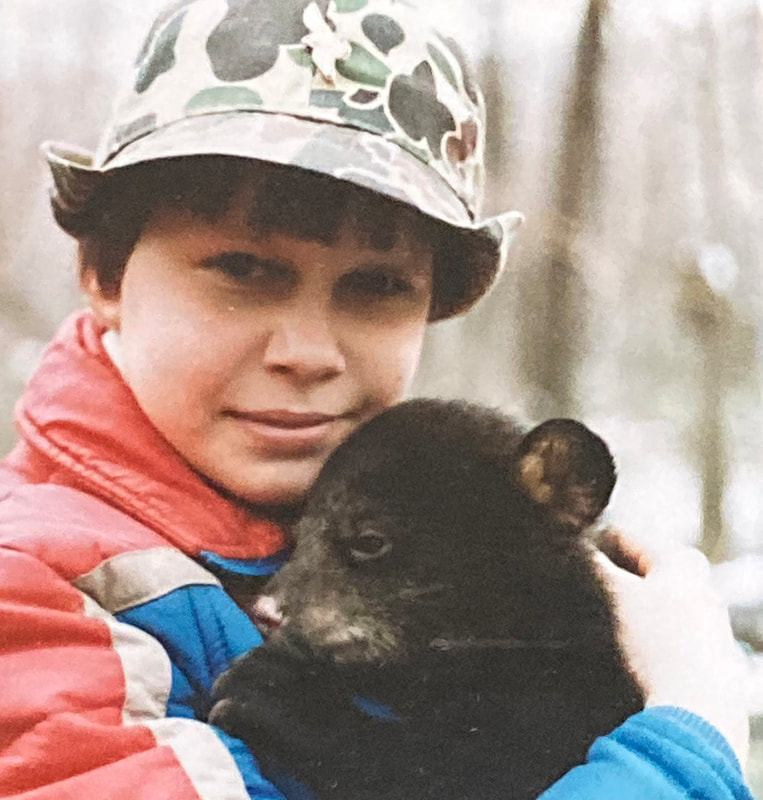 Black bear cubs like this are being born during the month of January. Photo by author Black bear cubs like this are being born during the month of January. Photo by author The Pennsylvania Game Commission (PGC) sent out a point of information on what is occurring in Pennsylvania’s quiet forests right now. What they speak of is the many female black bears who are in a den and have not had anything to eat, drink or have defecated since fall and are awakening from their winter hibernation to give birth. Their den could be in a cave, an outcropping, underneath a boulder, even in a hole produced by an uprooted tree. Some may even den-up under a deck of a mountain home and often unbeknown to its owner. According to the PGC, a female bear gives birth to from one to five cubs, with three being the most common. The cubs weigh just eight to ten ounces at birth and with unopened eyes and having almost no fur on their bodies, are typically born the first few weeks in January. The cubs are kept alive by their mother’s warmth and rich milk. Bear milk, says the PGC, has a fat content of nearly 30 percent and may be the highest of any land mammal. After about six weeks, the cub’s eyes open and in about two more weeks, they walk. They’re able to leave the den when they’re three months old and are weaned by seven months. By fall they usually weigh 60-100 pounds. Many moons ago I, along with my 9-year old son, had the privilege of accompanying Gary Alt, the PGC’s bear biologist at the time, on a known female bear den site inspection. The purpose was to check the den for the number of cubs inside, weigh and measure the mother and her cubs, plus place ear tags on the female and her cubs. To do so, Alt, crawled partially into the den and with a poke stick, stuck the female bear with a tranquilizing dart. Waiting a few minutes for the dart to take effect, Alt along with his assistant, pulled the 300-pound plus female out of the den to weigh, measure it and take milk samples from its teats. Alt showed us how thick the milk was that appeared to be the consistency of sour cream. Before removing the cubs, Alt allowed me to crawl in the den to take some pictures as the three cubs were cuddled together. Alt then crawled in to bring out the cubs to process them. When the processing was completed, Alt placed the cubs back in the den then pushed the female back in but not before putting Vicks on her nose. The purpose of that was so she didn’t smell human odor on the cubs, which she could reject them if she did. It was a nature experience I nor my son will never forget. For more information on Pennsylvania’s black bears and their management check https://bit.ly/3CIQdN3.
0 Comments
Leave a Reply. |
AuthorNick Hromiak has been an outdoors and automotive writer for over 30 years. He's been published in numerous national and state-wide outdoor magazines and newspapers.
|
Proudly powered by Weebly
 RSS Feed
RSS Feed